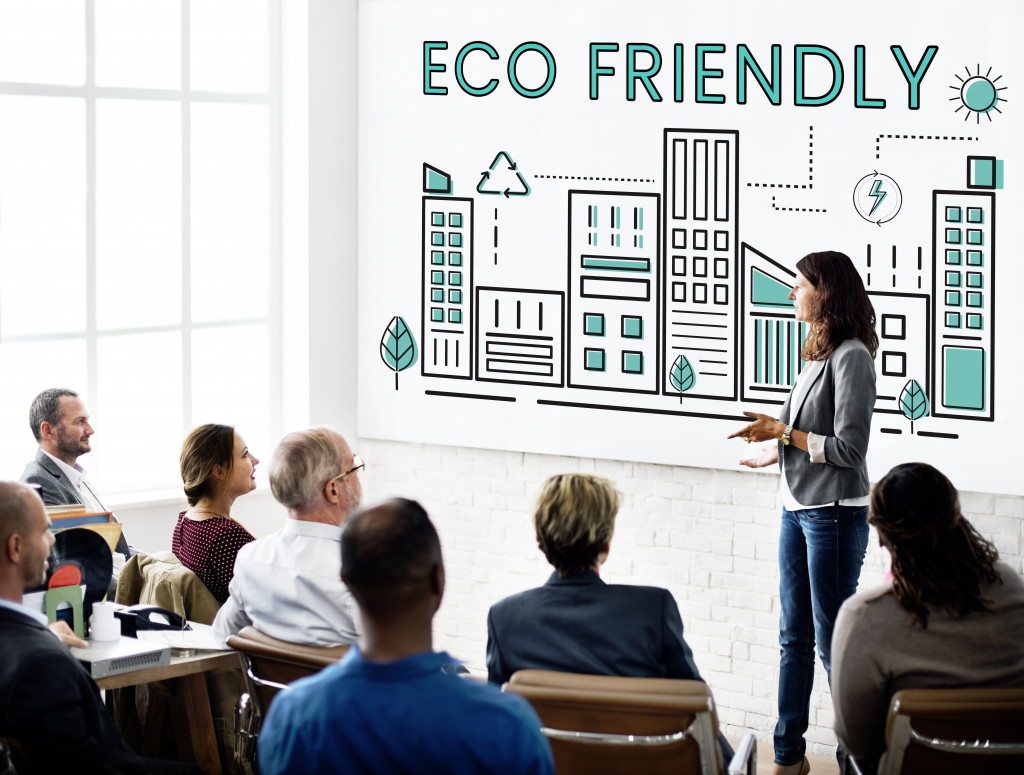“Eco-friendly toothbrush, eco-friendly straws, eco-friendly this and that.” We hear the word eco-friendly a lot nowadays. But what does it even mean? When you check the Merriam-Webster definition of eco-friendly, it says not environmentally harmful. That means that any product labeled as eco-friendly should have no negative effects on the environment during any phase of its production or use. But what most people don’t realize is that any production process will result in some negative effect on the environment.
Humans have been negatively affecting the planet for thousands of years now (plastic pollution, air pollution, and continuous land use). A recent study showed that as early as 10,000 years ago, humans’ use of land has been significantly impacting the environment and the planet—land use, such as farming, foraging, and animal grazing. In case you didn’t know, forests had to be cleared up to make space for farmland and herding animals. Studies have also shown that farming is responsible for 60% of agriculture’s greenhouse gas emissions. But just because they contribute to greenhouse gas emissions, does that mean that we should give up on farming? No, we shouldn’t.
What we should do is learn to be more sustainable
Sustainability or the word sustainable is often interchanged with the word eco-friendly. If they aren’t being interchanged, they are usually used in conjunction with one another. The definition of sustainability, according to Merriam Webster, is “a method of harvesting or using a resource so that the resource is not depleted or permanently damaged.”
To further understand the concept of sustainability, let’s look back at farming. We’ve established early on that farming has some harmful effects on our environment. We clear out forests to make planting space, and it’s a contributor to greenhouse gas emissions. But that doesn’t mean we have to stop farming altogether. It just means we have to learn how to farm more sustainably. One of the few solutions to making farming more sustainable is to go for small-scale farms instead of large-scale ones. That way, we don’t have to clear out more forests for planting space. And to lessen greenhouse gas emissions as well.
Take note; there are much worse industries that are creating far bigger impacts and irreversible effects on our planet. The greenhouse gases emitted through farming is a problem that can be easily solved, unlike the CO2 emissions and oil spills caused by oil and gas companies.

Anyways, the only reason farmland is so large-scale is because humans have unending demands. And frankly, the Earth’s resources can’t keep up with our demands. That’s exactly why sustainability is so important. We can’t continue to take resources from the planet to the point where nothing is left. We have to learn to limit our demands to continue benefiting from the Earth’s resources without damaging it permanently. That’s why eco-friendly and sustainable products are being made. It’s so that people can continue living a comfortable life without completely stripping the Earth of its resources or harming it further.
If you ever think eco-friendly products and living sustainably is just a fad. Think again. Some people label their products as eco-friendly to get more people to buy their products. Even if they aren’t truly eco-friendly, some companies try their best to provide people with sustainable products and services. If you need help knowing which products are eco-friendly, look for products or services with the Green Seal. Another way to know if the product is eco-friendly is to see what material or ingredients it’s made of. Eco-friendly materials include bamboo, hemp, organic cotton, glass, paper, silicone, and even rubber. Aside from switching to eco-friendly materials, you can also live more sustainably by:
- Using reusable tote bags, reusable water bottles, and avoiding single-use plastics.
- Buying second-hand or recycled clothing.
- Ordering items with non-plastic packaging.
- Choosing to eat more veggies and reducing your meat consumption.
- Buying fruits and vegetables that are only in-season.
- Buying products that are locally sourced.
Again, keep in mind that anything we create will have some negative effect on the planet. Therefore, nothing is ever truly 100% eco-friendly. But just because everything will harm the planet doesn’t mean we allow companies to create huge negative impacts on the planet. Much like humans, the Earth has its limits. We can continue to take from the Earth but only up to a certain extent. If we cross that line, we may risk creating further irreversible damage to the planet. We might not be able to stop every single harmful effect done to the planet. We can reduce it enough to allow the Earth to heal and regenerate properly.

